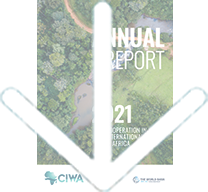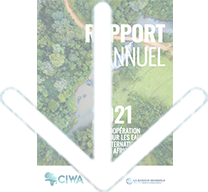STRATEGIC FOCUS AREAS
RESILIENCE
Adopting a broader resilience perspective is crucial, as CIWA helps strengthen the capacity of riparian governments to better adapt to, and potentially transform amid, change.
GENDER AND SOCIAL INCLUSION
CIWA’s work on Gender and Social Inclusion (GESI) offers a transformative approach that shifts from one-off interventions toward actions that disrupt deeply entrenched norms and attitudes about gender inequality and social exclusion and target multiple, diverse stakeholders.
BIODIVERSITY
The CIWA program is exploring ways to better align transboundary water cooperation efforts with biodiversity conservation goals, including identifying opportunities at the intersection of transboundary water management and freshwater biodiversity conservation.
FRAGILITY, CONFLICT, AND VIOLENCE
CIWA is expanding and deepening its support to countries affected by fragility, conflict, and violence (FCV). In 2021, 21 countries in Africa were classified as FCV states, and CIWA operates in 11.
WATER DATA REVOLUTION
Through the new Water Data Revolution (WDR) technical cooperation, CIWA is assisting governments to address constraints to cooperative water management by enhancing access to Remote Sensing Data and data platforms.





